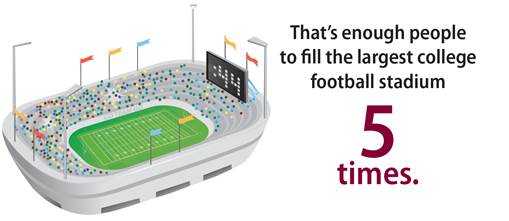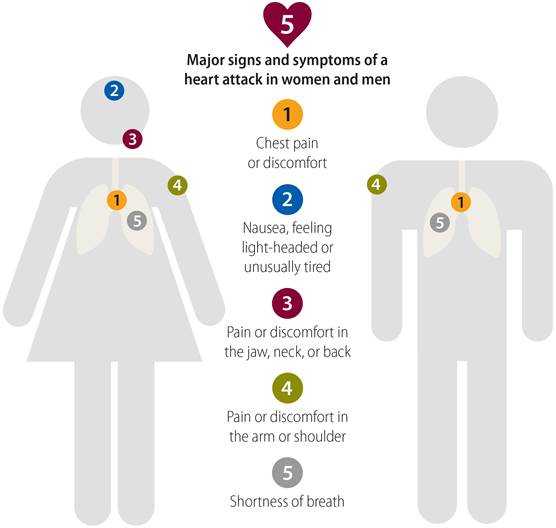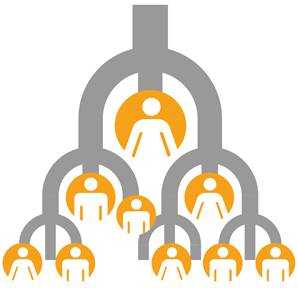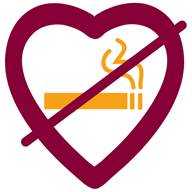Heart Disease Quiz
Heart disease is a serious medical condition, but knowing how to prevent or manage heart disease can help save your life or the life of someone you love.
Test your knowledge about heart disease with six quick questions.
- True or false? Heart disease is the second leading cause of death in the United States.
True
False -
ANSWER: False. Heart disease is the leading cause of death for men and women in the United States. About 600,000 Americans die from heart disease every year—that's 1 of every 4 deaths.

Heart disease is the term used for several types of problems affecting the heart. Coronary artery disease (CAD) is the most common type of heart disease. CAD kills more than 380,000 people every year. - Having high blood pressure, having high cholesterol, and smoking tobacco all increase your risk for heart disease. Health care professionals call these "risk factors."
How many American adults have at least 1 of these 3 risk factors for heart disease?
24%
37%
47%
76% -
ANSWER: 47%. About half of all American adults have at least 1 of the 3 major risk factors for heart disease—high blood pressure, high cholesterol, and smoking.

The more risk factors you have, the more likely you are to develop heart disease. Other risk factors for heart disease include the following:
- Having diabetes.
- Not getting enough exercise.
- Eating an unhealthy diet.
- Being obese.
- Having a family history of heart disease.
- How many Americans will have a heart attack for the first time this year?
-
Less than 50,000
100,000
500,000
More than 600,000
ANSWER: More than 600,000. About 735,000 Americans have a heart attack every year. Of those 735,000 heart attacks, about 525,000 happen to people who have never had a heart attack before.

People who have had a first heart attack are more likely to have another one. Learn more about life after a heart attack.
- You have a better chance of surviving a heart attack if you know the warning signs. Which of these is a warning sign of a heart attack?
-
Pain or discomfort in the jaw, neck, or back.
Shortness of breath.
Feeling weak, light-headed, or faint.
All of the above.
ANSWER: All of the above. There are five major signs and symptoms of a heart attack:
- Pain or discomfort in the jaw, neck, or back.
- Feeling weak, light-headed, or faint.
- Chest pain or discomfort.
- Pain or discomfort in arms or shoulder.
- Shortness of breath.

Other symptoms of a heart attack could include unusual or unexplained tiredness, pain in the upper abdomen, and nausea or vomiting. If you or someone you’re with shows any of these warning signs, call 9-1-1 right away.
- True or false? Heart disease can run in a family.
-
True
False
ANSWER: True. Family members share genes, behaviors, lifestyles, and environments that can influence their health and their risk for disease.

Members of a family can pass traits from one generation to another. Some of the traits you inherit from your parents can affect your risk for heart disease.
Your risk can increase even more when inherited traits combine with unhealthy lifestyle choices, such as smoking tobacco and eating an unhealthy diet.
- By making healthy choices, you can help lower your risk for heart disease. Which one of these is not part of a healthy lifestyle?
-
Being physically active.
Taking medicine prescribed by your doctor.
Smoking tobacco.
Eating a healthy diet.
ANSWER: Smoking. Smoking Tobacco raises your blood pressure and greatly increases your risk for heart disease.

If you don’t smoke, don’t start. If you do smoke, quitting will lower your risk for heart disease. Your health care team can suggest ways to help you quit. Quit resources are available online at Smokefree.gov.
Get more tips for preventing heart disease.
References
- Kochanek KD, Murphy SL, Xu J, Arias E. Mortality in the United States, 2013. NCHS data brief, no 178. Hyattsville, MD: National Center for Health Statistics. 2014.
- CDC. Vital signs: awareness and treatment of uncontrolled hypertension among adults—United States, 2003–2010. MMWR. 2012;61:703–9.
- Mozaffarian D, Benjamin EJ, Go AS, Arnett DK, Blaha MJ, Cushman M, et al. Heart Disease and Stroke Statistics—2015 Update: A Report From the American Heart Association. Circulation. Originally published December 17, 2014. doi: 10.1161/CIR.0000000000000152.
- Page last reviewed: July 27, 2015
- Page last updated: July 27, 2015
- Content source:



 ShareCompartir
ShareCompartir